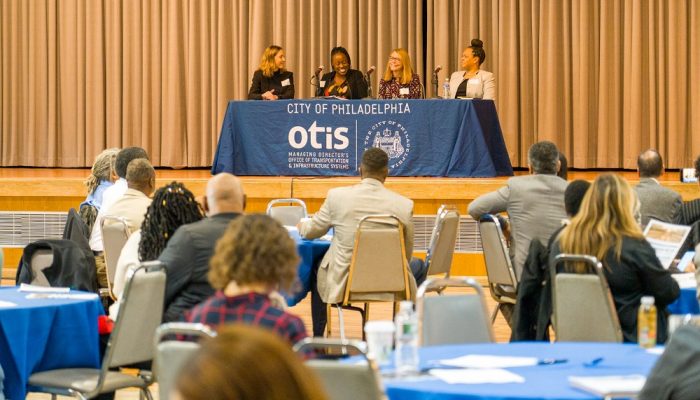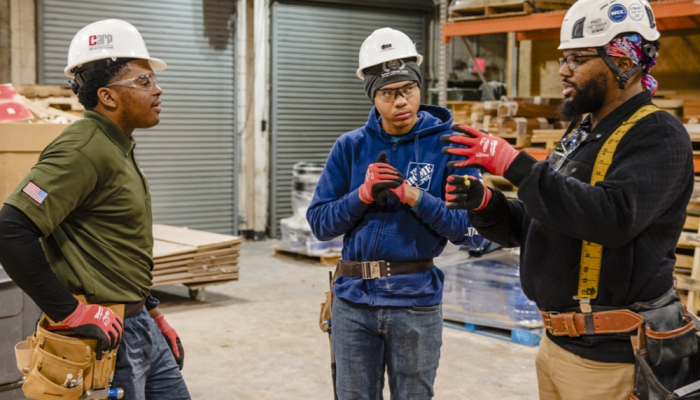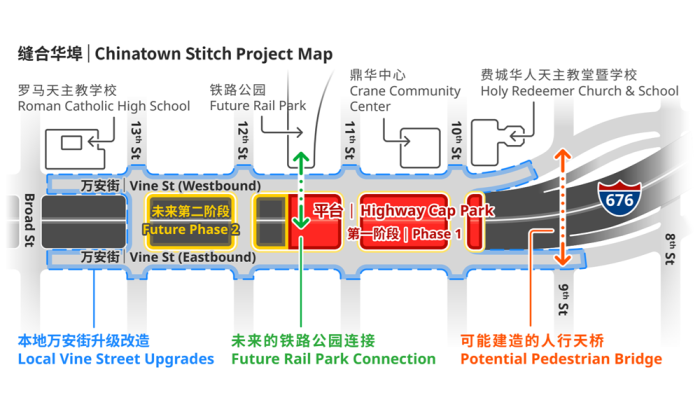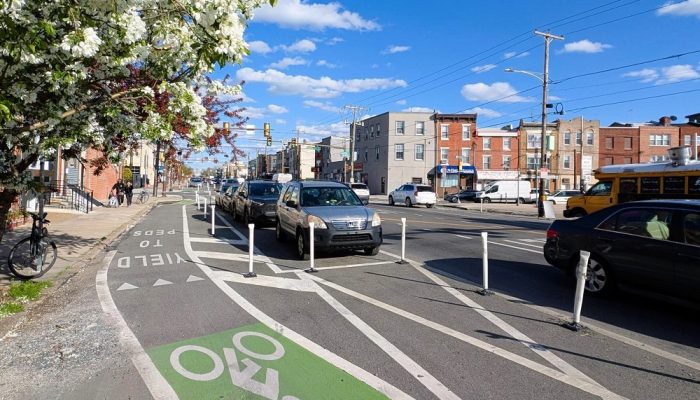Earlier this year, the City explained how the Bipartisan Infrastructure Law (BIL) will create jobs and promote equity in Philadelphia. With $1.2 trillion in new federal funding, the BIL is the largest long-term infrastructure investment in American history.
The City has already been awarded around $300 million for infrastructure upgrades – including $78 million for improvements to Roosevelt Boulevard, a $25 million RAISE grant for school slow zones, and a $2 million U.S. DOT SMART grant for mobility improvements. We are continuing our efforts to secure more over the coming years for major projects. One example includes Philadelphia recently being selected for the Mid-Atlantic Hydrogen Hub, a $750M federal investment in clean energy.
With this initial funding secured, the City announced its first ever Public Works Procurement Forecast at the Infrastructure Mixer networking event on October 24, 2023. This forecast pulls together a list of more than 300 different anticipated public works contract opportunities from three City agencies:
- Department of Streets,
- Philadelphia Airport (PHL & PNE), and
- Water Department.
The City also aims to seize the opportunity to grow generational wealth for Philadelphians as we upgrade our road, water, energy, and resiliency infrastructure.
The citywide goal is for 35% of City contracts to go to minority, woman, or disabled-owned (M/W/DSBE) businesses, and to grow the City’s Office of Economic Opportunity Business registry of M/W/DSBE certified firms. Many of the federally-funded projects utilize the U.S. Department of Transportation’s Disadvantaged Business Enterprise (DBE) program.
The City wants eligible contractors to know how to become DBE or M/W/DSBE certified and be well prepared to submit competitive responses to contract opportunities.
All contractors performing work for the City are a key partner in achieving this vision. Equitably growing the infrastructure economy will require government and the private sector working together. Giving small and diverse-owned contractors a good sense of the anticipated work provides useful information as they network with other companies and prepare competitive bids.
The procurement forecast includes expected projects over the next 18-24 months and the list will be refreshed every six months. Accounting for over $340 million of upcoming work, the scope of work crosses multiple trades and upcoming demand for prime contractors and subcontractors in fields such as highway and bridge construction, electrical installation, water and sewer structures, manufacturing, trucking and warehousing, and general labor and equipment operation.
Highlighted projects include:
Water
- East Park Booster Pumping Station Betterment
- Flood Relief in Master St / Germantown Ave
- Ditman Green Corridor
- 56th St Tree Canopy Enhancements
Airport
- Terminal D/E Baggage Claim HVAC Upgrades (mechanical and electrical)
- PNE Administration Building Improvements (various)
- PNE Perimeter Fence Improvements
- D&E Checkpoint Curtainwall Replacement
- CCTV Upgrades-Phase 2B
Streets
- 5th Street North as a Complete Street
- ADA Curb Ramp Upgrades
- Logan Square Sidewalk Modernization
- Falls Bridge
- Parkside Cynwyd Trail
Looking Ahead
Between the BIL and various State programs, the City is poised to receive almost $1 billion in infrastructure funding in the coming years for roads, bridges, mass transit, water infrastructure, electric vehicle charging, broadband, among other projects.
But the economic impact will be seen and felt for at least a decade, as many large infrastructure projects need years to design and build. And there are more projects being announced as the BIL continues to roll out.




